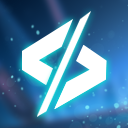
import articles from ‘codyfight’
let article04 = articles.IndustryProblems
console.log(article04)
Video games are one of the fastest-growing mediums we have ever seen in recent years. It has surpassed movies and music in terms of revenue and nearly 3 billion people have played video games. However, rapid development often comes with new problems and many problems have emerged in the gaming industry.
In the previous issue, we have briefly mentioned several glaring problems of the gaming industry. In particular, they include the lack of space for creativity, time-consuming, mindless in-game activities, and often ending up quite unrewarding to be pursued as a career.
This article will go in-depth into the previously mentioned aspects — the various plagues affecting the gaming industry.
Various plagues affecting the gaming industry.
There is a need for more creative space where both programmers and artists can unleash their imagination, have fun, and earn rewards.
Video gaming, eSports, and crypto industries are all billion-dollar markets that are expected to grow significantly over the next decade. On the other hand, NFT is a phenomenon that is currently unknown to most people. NFT gaming has blurred the line between playing and working, and an increasing number of people now list being tech-savvy as one of their attributes.
There aren’t many games where tech-oriented people could experiment and push a project to the edges of its potential. Roblox is probably one of the few platforms that provide users an Application Programming Interface (API), allowing gamers to create video games by themselves. However, Roblox itself is not a video game, but rather a tool for building games easily.
However, Codyfight combines fun, strategic gameplay with the option for players to tamper with in-game characters (AI robots). This may sound similar to video game modding, but with Codyfight’s API, people can utilize their programming skills to the fullest. And as a bonus, players can use any programming language to create AI robots!
But don’t let the word “coding” intimidate you even if you have no programming background. We have designed Codyfight in a way that non-coders can also play the game via the website user interface (UI). The game has been designed to suit all levels, and enable even rank beginners to pick up and play and improvise strategies along the way that could potentially defeat the mightiest of AI robots.
Creative, tech-savvy players need more opportunities to contribute to the games and earn from their contribution.
Gaming enthusiasts love the aspect of content creation of their favorite games, including artistic drawings, game mods, memes, music, videos, community events, and so on. Unfortunately, they often share their creations on third-party social media platforms (e.g., Facebook, YouTube, Reddit), and only a tiny percent of these intellectual properties are usually recognized and properly compensated.
Pro gamers centric in terms of career.
The current gaming industry only gives prize money to the top of the best players, while the rest receive no monetary benefits from playing the games. This situation has created additional problems — passionate gamers cannot make much from gaming. On a side note, in 2021, there were only about 2,000 pro-gamers worldwide who could afford to live from gaming.
Digital ownership is not widely accepted.
In traditional video games, for example, CS:GO or many MMORPG titles, users often own various in-game items, such as weapons, cosmetic items, skins, etc. Although players can trade items in these games, such activity only works within that specific game marketplace or the company platform (e.g., Steam).
However, non-fungible tokens (NFTs) will revolutionize how gamers own digital assets. An NFT is a digital asset representing real-world objects like art, music, in-game items, and videos. They are bought and sold online, frequently with cryptocurrency. In addition, they are generally one of a kind and have unique identifying codes. This stands in stark contrast to most digital creations, which are almost always endless in supply. For instance, gamers will always have an infinite source of equipment if you constantly grind in a video game.
Limited space for AI — Humans interaction.
In 2021, most games typically implement particular AI behavior that determines movements and actions of in-game playable or non-playable characters (NPCs). However, NPC behaviors in most video games are bare-bone, and video game developers control most of them. For example, the blockbuster launch of Cyberpunk 2077 back in late 2020 was met with criticism due to poor AI implementation in comparison to older titles. Meanwhile, the community of gamers’ feedback also has little impact on what the game offers, meaning NPC AIs are usually left untouched.
A need for a competitive environment for programmers.
There are only a few ways for programmers to compete and show off their coding skills. Of course, people can participate in game jams, but these events are often aimed at coders with experience. There are also websites such as LeetCode, Topcoder, Codeforces that hold coding contests, but competitive programming on such platforms is still a niche activity compared to gaming.
Current coding games do not focus on gamer needs.
Currently, most coding games primarily target teachers, students, and companies — not individual gamers. On top of that, automated playing by coding bots is globally considered cheating.
The list above consists of a few challenges that the video game industry has yet to solve, either due to the lack of innovation or the companies monopolizing game development. In the end, gamers still have the least freedom in altering the conventional scheme of video games.
Nevertheless, NFT is about to change that and offer a new light in digital ownership, and Codyfight is ready to join the movement.
//maximum message length exceeded
//thank you for reading this far
exit()
